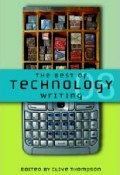 Once again, I have a stack of great books sitting on the Sciencebase desk ready for review.
Once again, I have a stack of great books sitting on the Sciencebase desk ready for review.
First up is Go Green – How to Build an Earth-Friendly Community, which you will be pleased to learn has been published on apparently sustainable paper. The author, Nancy Taylor, is an environmental columnist and teaches a course on the art of green living. Her book does what it says on the tin (also recyclable, other metals are available), offering advice for those who want to change the way they live to be more in line with a sustainable future. Homeowners, students, professionals could do well to take a look and learn how to live greener lives. Politicians should also take a look, as at the bottom line, Taylor could show them how to save money.
And, speaking of green, fuel cells are apparently the future. Gavin Harper, in Fuel Cell Projects for the Evil Genius explains how they work and how you could make and test a simple fuel cell.
Next up is Ad Lagendijk’s Survival Guide for Scientists. In a scientific world, steadily growing virtual, it’s reassuring to know that some of the old principles of good writing, preparing a research paper, putting up a poster presentation, corresponding with fellow scientists, and giving a talk, are still valid. It’s not all flickering comments on Twitter and Feedfriend after all. The Guide is aimed primarily at undergraduates, grad students, and postdocs in the natural sciences and offers a practical howto on the foundations of writing, presenting and researching science.
A Short Guide to the Human Genome from Stewart Scherer attempts to answer some of the basic questions about genetics. How many genes are there in the human genome? Which genes are commonly associated with disease? What are the biggest genes? How close is the human genome to the mouse, yeast, bacteria?
Stem Cells, Human Embryos and Ethics edited by Lars Ostnor attempts to define whether it is acceptable from an ethical, as opposed to scientific standpoint, to use stem cells harvested from human embryos for biomedical research or as treatments for sick patients. This advanced book provides a brief introduction to the emerging technologies and a basis for wider debate.
From inner space to nearby outer space, Ralph Lorenz and Jacqueline Mitton take us on a tour of Saturn’s mysterious moon in Titan Unveiled. This is the first authoritative book to look at the data from the Cassini-Huygens probe sent to observe one of the largest moon’s in the solar system, Titan.
Staying with astronomy, but taking a much broader cosmological view, Leonard Susskind tells us of his battle with Stephen Hawking to make the world safe for quantum mechanics in The Black Hole War. With nothing less than an understanding of the entire universe at stake it was essential that the argument over the true nature of black holes between Susskind, Hawking, and Gerard ‘t Hooft be won, one way or the other, so that we can know what happens ultimately to someone sucked into a black hole.
Finally, just arrived is this year’s Best of Technology Writing, edited by Clive Thompson. If this is anything like the previous two editions then it is a feast of great technology writing from my peers across the pond. It carries a fascinating mix of topics from a molecular recipe for the perfect gin & tonic to an ancient Greek artifact that may have been the world’s first laptop computer.
For those interested in the technical and scientific writing, here is a list of online learning resources courtesy of Matchacollege.com, thanks to Kelly Sonora for emailing the link.
- Introduction to Technical Communication: Perspectives on Medicine and Public Health: Study the writings of physicians to learn about technical style and issues.
- Intro to Tech Communication: Technical researchers learn the basics of technical writing here.
- Introduction to Technical Communication: Ethics in Science and Technology: Writers who work in science and medical fields can learn about unique ethical standards here.
- The Science Essay: Scientific writers can learn techniques about appealing to an audience and revising their work in this course.
- Technical Writing: Here you’ll find a great resource for technical writing.